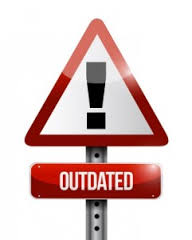I am not panicking, I am thinking how we can stop microbes, poisoning clients and people in restaurants and food places in Lebanon. Kids love to eat nuggets and Macdo Nuggets are bad?! There is not a proper law for food safety that sets standards for what we eat in restaurants in Lebanon. Our dear MPs have not voted for a law for food Safety in Lebanon, I just found that late Fuleihan proposed a law, but “In 2006, the law was debated in the council of ministers and sent to parliament for further discussion but there has been no action since. ” Also, as per the Daily Star in 2012, “Future Movement MP Atef Majdalani submitted a draft law on food safety, saying it aims to modernize a sector which has failed to keep up with modern standards.” Again, Nothing happened and a law protecting people’s life has not been “Cooked”.
I checked the Official gazette, nothing was voted and published in it since then related to food safety, so is the law sleeping in Parliament drawers, while citizens are eating “bad” and poisonous food? Food that is ‘dipped in diseases and microbes’ as yesterday’s Minister Faour Said in his press conference? Does anyone has other information ?
as for the minister Abou Faour , Is this just a flash campaign from the ministry of health, “flash” as “flash mobs” or will they continue testing “without taking “Rendez-vous” from restaurants and eating facilities? how can Inspectors for food safety not be bribed? Will the ministry publish the details of the results of all tests done? And what were they “testing”? Hygiene, microbes, salmonella?
I checked if there is Non Governmental Organisations working on the subject, I just found one called LAFS Lebanese Association for Food Safety , they are not very active as their website is not updated and their Facebook Page is sleeping since the “Labneh scandal”, March 27 2014 I believe, here is a print screen.
The good thing I found on their website are the description of Symptoms and illnesses even though they don’t add the sources of their information. Below is a copy paste of what is related to that.
I am repeating my self, Food Safety comes First, we need to have a proper law that regulates the tests, the “kabssets” and proper system of implementation that will penalize those who brake the law.
Again, I am repeating my last questioning post related to Roadster a place I go to a lot, what is the take of Roadster related to the chicken that failed the test? Especially that the cover page picture of Lebanese association for food safety on Facebook shows a partnership with roadsterdiner.
My question, is food safety truly respected at roadsters or it is just a communication campaign and branding issue?
as for my credentials : a normal citizen asking for her right for proper and safe food in a country known for its restaurants and hospitality and eating services and Tabbouleh!
Rita Chemaly

Cover picture of the Lebanese Association for Food Safety partnering with Roadsterdiner taken from Facebook
|

















